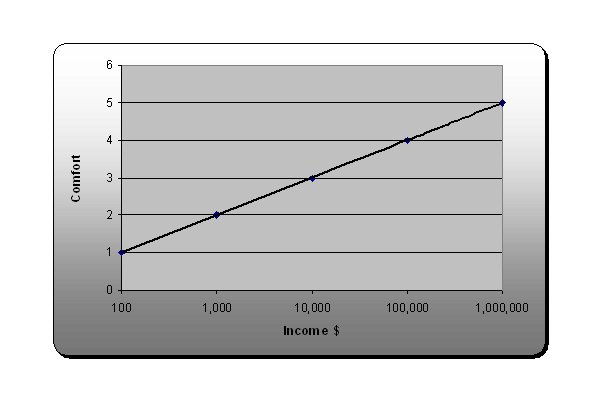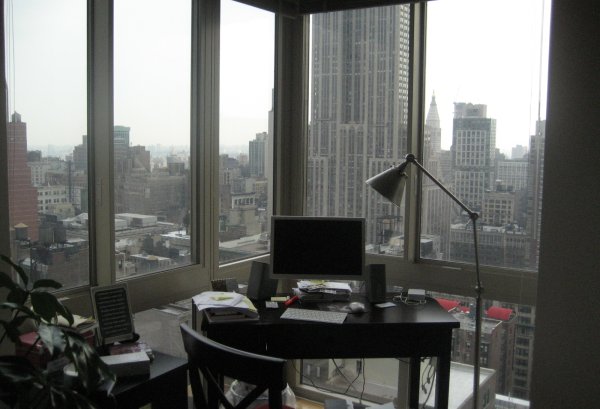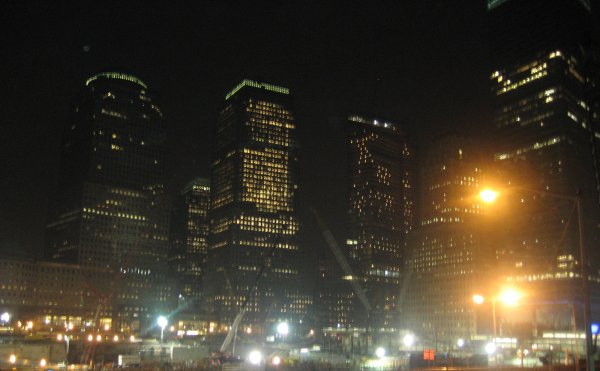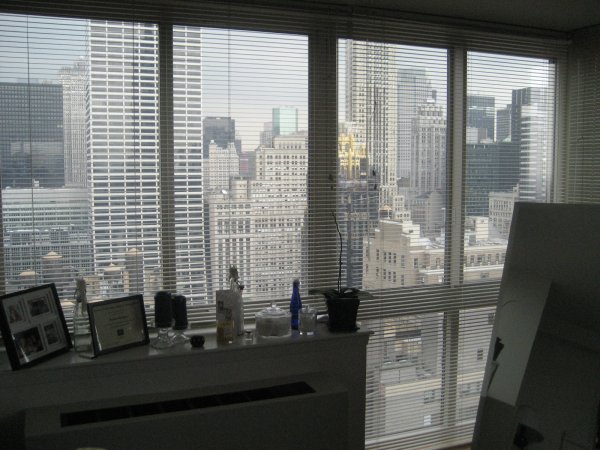Cultural Motivation for Personal Prosperity
I realized something listening to China inc. on my way back from NYC (Visiting a supplier Friday. Then seeing friends over the weekend). Over in China, the right pedigree, education, etc, is about as sexy as the perfect body and fashion in the States. Over in Asia, kids stay up late for homework and are ďhanging from the rafters to get a peak at Bill GatesĒ (World is Flat). In the States, the equivalent teenagers are staying up late partying and hang from the rafters for a glimpse of Ryan Seacrest.

(Any resemblence to me? A bouncer at a super fun unmarked club, 152 Orchard, mistook me for Ryan Seacrest... and made sure me and the girl with me got in with no problems. Then the guys behind us had to listen to him talk about "who just walked in." Funny:)
Why such a difference in prioritization?
Because in the USA, being Middle Class is still a pretty good life. But in China, if youíre not in the upper class, youíre on the bottom of the heap... and the bottom is a long way down from the top. The comforts of life afforded by income levels is somewhat logarithmically distributed.
$100K a year affords a pretty good life with adequate disposable income.
$1M a year is significantly better, but enables investment opportunities more than additional comforts.
$10K a year leaves you scraping, but doable in a poor country such as China.
$1K a year hurts, but affords survival.
$100 a year, and you donít know if youíll see the next year.

In the States, no matter what your education or ambition, youíll fit somewhere above the $20~$30K line. That life isnít exactly fun, but it isnít a life of continuous fear for survival. In the States, a top notch pedigree can get you into the highest earning bracket, but it doesnít get you significantly more comfort in life (and can soak up a lot of time from enjoying the playful things of life). There really isnít anything to fear. No stick, and the carrot isnít much better than what youíll get anyway.

(I would be in heaven with this corner view to write and think each evening)
In China, if you donít have a pedigree, there is real reason for fear of your future. Breaking into the next income level makes a huge difference, not only is bringing comfort, but in eliminating fear.
Recognizing this, itís obvious why kids in China, India, and the rest of the borderline developed world, are so naturally inclined to study and work hard. Their motivation comes not only from rewards to gain, but fear to run from. With these forces in the foundation of their society, it is entirely natural for their kids to work and study, and to value people for their accomplishments that lead to financial prosperity.

(My kind of store front. Zero glamour.)
These are the same conditions the US saw over the previous centuries, as we were climbing to become a world power. Comfort wasnít the default condition of your life. Comfort had to be earned. Now that comfort (relative to the world) is the default of America, weíre more susceptible to flow toward more socialistic policies, as Europe has drifted. If we vote for it, we can tax the wealthy and business enough that we remove the fear of poverty, simultaneously removing a motivator for a large portion of the population to work hard and work smart.

(Rebuilding Ground Zero. I flew in Sept 11, and from the airplane saw the Twin Towers lights beaming into the sky, then flooding out across the clouds overhead. Absolutely beautiful, and very majestic.)
Itís no fun to live in fear. But to entirely remove fear from our perceived horizon is to remove a potentially healthy component of motivation. I prefer to be motivated by Desire instead of Fear, but I believe we tend to fall short of our full potential, as individuals and as a society, unless we have a healthy level of fear motivating our daily and long term decisions. From a provincial perspective, I donít want anybody in America to live in fear. However, I do believe it is in the long term best interest of every individual in America to live with a certain level of fear in certain areas. Fear of terrorism or global war is an entirely unproductive fear, but fear of poverty is a very healthy fear.

(Brooklyn Bridge)
As a nation, I believe we should vote for policies and leaders who take action to reduce our fear of things such as terrorism and lawlessness, yet who leave a healthy level of fear of poverty (or unemployment).
When I was in Germany the summer of 2001, I had a conversation at 4am in Hamburg with a guy (semi-drunk) who was unemployed, but adequately comfortable with the housing and food provided by the State. Since graduating with his 4 year degree in philosophy, he had worked a couple years, then was unemployed for a couple years and supported by the state. Then he got a job for another couple years, and eventually couldnít earn enough to afford an apartment, so he stopped working so he could get the unemployment support from the State which included a small apartment. Heíd been living that way for the last two years when I met him. He didnít like ďto have a plan. To be here at this time, or do this at that time. I donít enjoy that. I could do that and earn money, and enjoy life a little more. But I can enjoy life enough without money.Ē I just asked questions and listened to his stories and thoughts on life, keeping the experience open to be interpreted in many ways later. In this context, I see that the German welfare system removed all fear of unemployment from this guy.

(Penthouse Deck of a friends apt. on Wall St. Great place for ice cream.)
I donít think everyone abused the system the way this guy did, but itís clear that the German system in í01 supported this behaviorÖ even from a guy with a 4-year degree. In America, this guy would probably get labeled with emotional or psychological disabilities or something else to justify his decisions, but the relevance to this discussion is the absence of fear of poverty, or unemployment. The high level of fear of poverty in China (which is probably average on a global historical comparison) is probably extreme enough that it detracts from the enjoyment many Chinese experience in life. This other extreme I encountered in Germany detracts from the enjoyment many other people could enjoy (and investment they could make), because resources are being unnecessarily diverted to sustain a non-producer, simultaneously eliminating the productivity he could actually give to society, instead of just taking from society.

(I would never get tired of waking up to this.)
Hopefully we can keep the USA in a healthy balance between China and Germany, keeping the motivator that Fear of Unemployment is, while tempering the pain experienced by those who find themselves unemployed. Hopefully we can minimize the free-riding of the Greedy Poor, while serving the genuine needs of the Working Poor. While the economy of China is booming with growth based on their transition to Capitalist systems, letís avoid the mistake in the US of transitioning in the reverse direction toward the Socialist systems theyíre leaving. However, letís keep ourselves from going the other direction, away from Capital Markets and into Black Markets like Russia, which will only bring about the brutish aspects the poor of China and Russia presently endure.